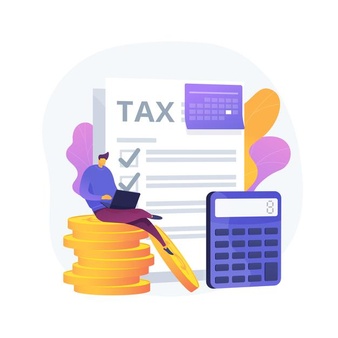Start 2022 off with Tax Resolution Guidance
4 Mins Read
Published on: 17 January 2022
Last Updated on: 23 December 2024

toc impalement
The New Year is a time for resolutions. It’s a time when we reflect on the past and set goals for the future. However, it can be hard to keep these resolutions if you are worried about how much money you owe in taxes.
Resolving your taxes is important because it ensures that you will have enough funds to pay your monthly bills. Or, if you are self-employed, your business expenses. It also helps you avoid costly penalties and interest fees that are charged by the IRS.
If you want to resolve your tax obligations but aren’t sure where to start, consider hiring a tax specialist. In doing so, you can get the professional guidance you need to take care of your debt and get on with your life. Let’s look at some ways a tax specialist can help guide you in your efforts.
Resolve Any Unpaid Taxes

If you’re ready to make 2022 the year that you resolve your tax debt, tax resolution starts with getting last year’s taxes paid. An experienced tax specialist can assist you with this by contacting the IRS on your behalf and setting up an agreement.
Moreover, if you haven’t filed your taxes yet, it’s not too late to ask for an extension. This will provide you with additional time to file your tax return. By getting a head start on your tax debt and taking action now, you can resolve your taxes sooner and enjoy the peace of mind that comes with doing so.
Indeed, one of the best ways to ensure that you are able to meet your resolutions in the New Year is to resolve any outstanding tax issue as soon as possible.
The IRS is diligent about collecting taxes owed, which is why it’s so important to take care of them this year. Simply filing your 1040 form won’t be enough, though. If you have any tax debt or penalties, you’ll need to resolve them before they get out of hand.
Don’t forget that if your taxes are not in order, they can affect other aspects of your life, too. For example, the more you owe in taxes, the harder it will be to get caught up or pay for basic necessities like food.
If you are self-employed and are still working on getting your taxes in order for this year, remember that there are certain benefits available for self-employed individuals who pay their taxes on time. You may qualify for things like an increased child tax credit or the earned income tax credit (EITC).
Choose the Right Resolution Option for Your Situation

There are a few different ways to resolve your tax debts, which your tax professional will negotiate with the IRS on your behalf. These include:
- Installment agreement
- Offer in Compromise
- Fresh Start program
You may be able to qualify for an Offer in Compromise if you can’t afford to pay off your taxes in one lump sum. This option may be perfect for you if you only owe the IRS a smaller amount of debt. You can make monthly payments until the debt is completely repaid, or you can pay it all at once.
In contrast, if you owe a greater amount of tax debt, you may qualify for an installment agreement. With this option, you make monthly payments instead of all at once. The amount that you owe each month will depend on your income level.
The Fresh Start program was introduced by the IRS to help taxpayers get out from under their tax debt. As such, it’s a viable solution to avoiding penalties. Since penalties make it harder for taxpayers to pay off their tax debt, the Fresh Start program could be the best option for you.
Your tax specialist will discuss the best course of action with the IRS based on your needs. This professional guidance and advocacy are essential to anyone looking to get out of debt.
File Your Taxes Early
One of the best things you can do for yourself is to start filing your taxes early. If you have a balance due to the IRS, they will charge interest and penalties if you file your tax return late. So, if you haven’t yet filed your taxes, don’t wait any longer.
If you need help with this, don’t hesitate to hire a tax specialist. They can make sure your tax responsibilities are handled in a timely manner to avoid potential penalties and pitfalls in your journey to resolving your tax obligations.
Read Also:


















Comments Are Closed For This Article